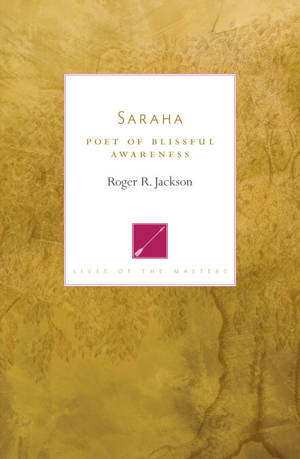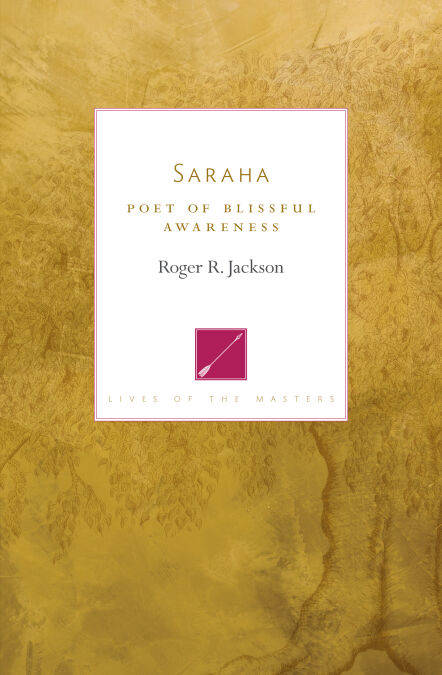
- Afhalen na 1 uur in een winkel met voorraad
- Gratis thuislevering in België vanaf € 30
- Ruim aanbod met 7 miljoen producten
- Afhalen na 1 uur in een winkel met voorraad
- Gratis thuislevering in België vanaf € 30
- Ruim aanbod met 7 miljoen producten
Zoeken
€ 29,52
+ 29 punten
Uitvoering
Omschrijving
The life and works of the mysterious Indian yogin, Saraha, who has inspired Buddhist practitioners for over a thousand years.
Saraha, “the Archer,” was a mysterious but influential tenth-century Indian Buddhist tantric adept who expressed his spiritual realization in mystic songs (dohās) that are enlightening, shocking, and confounding by turns. Saraha’s poetic verses made the esoteric ideas and practices of Vajrayāna accessible to a wide audience on the Indian subcontinent and served as a basis for the exposition, in Tibet, of mahāmudrā, the great-seal meditation on the nature of mind that permeates every tradition of Buddhism on the Tibetan plateau.
This is the first book to attempt a thorough treatment of the context, life, works, poetics, and teachings of Saraha. It features a search for the “historical” Saraha through evidence provided by our knowledge of the medieval Indian context in which he likely lived, the biographical legends that grew up around him in Tibet, and the works attributed to him in Indic and Tibetan text collections; a consideration of the various guises in which Saraha appears in his writings (as poet, social and religious critic, radical gnostic thinker, and more); an overview of Saraha’s poetic and religious legacy in South Asia and beyond; and complete or partial translations, from Tibetan, of over two dozen works attributed to Saraha. These include nearly all his spiritual songs, from his well-known Dohā Trilogy to obscure but important expositions of mahāmudrā, as well as several previously untranslated works.
Saraha, “the Archer,” was a mysterious but influential tenth-century Indian Buddhist tantric adept who expressed his spiritual realization in mystic songs (dohās) that are enlightening, shocking, and confounding by turns. Saraha’s poetic verses made the esoteric ideas and practices of Vajrayāna accessible to a wide audience on the Indian subcontinent and served as a basis for the exposition, in Tibet, of mahāmudrā, the great-seal meditation on the nature of mind that permeates every tradition of Buddhism on the Tibetan plateau.
This is the first book to attempt a thorough treatment of the context, life, works, poetics, and teachings of Saraha. It features a search for the “historical” Saraha through evidence provided by our knowledge of the medieval Indian context in which he likely lived, the biographical legends that grew up around him in Tibet, and the works attributed to him in Indic and Tibetan text collections; a consideration of the various guises in which Saraha appears in his writings (as poet, social and religious critic, radical gnostic thinker, and more); an overview of Saraha’s poetic and religious legacy in South Asia and beyond; and complete or partial translations, from Tibetan, of over two dozen works attributed to Saraha. These include nearly all his spiritual songs, from his well-known Dohā Trilogy to obscure but important expositions of mahāmudrā, as well as several previously untranslated works.
Specificaties
Betrokkenen
- Auteur(s):
- Uitgeverij:
Inhoud
- Aantal bladzijden:
- 560
- Taal:
- Engels
Eigenschappen
- Productcode (EAN):
- 9780834845824
- Verschijningsdatum:
- 4/11/2024
- Uitvoering:
- E-book
- Beveiligd met:
- Adobe DRM
- Formaat:
- ePub

Alleen bij Standaard Boekhandel
+ 29 punten op je klantenkaart van Standaard Boekhandel
Beoordelingen
We publiceren alleen reviews die voldoen aan de voorwaarden voor reviews. Bekijk onze voorwaarden voor reviews.







